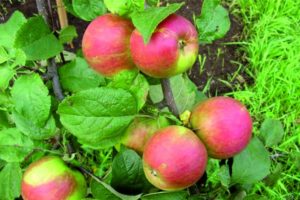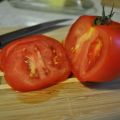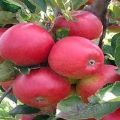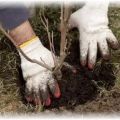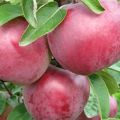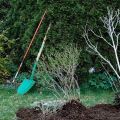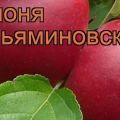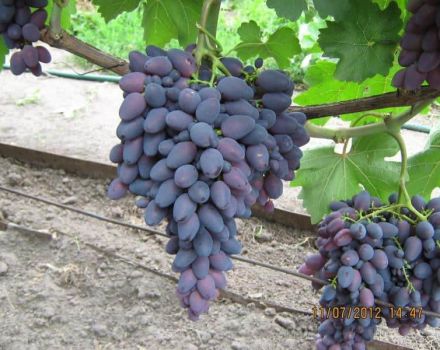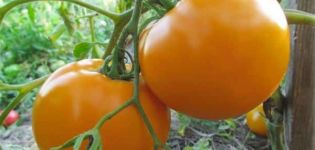Description, characteristics and terms of ripening of the columnar apple President, planting and care
Due to the numerous advantages of the columnar apple, the President variety easily became one of the most popular even among novice gardeners. A preliminary study of the basic rules of agricultural technology will allow you to simply cope with the cultivation and get a good harvest. The compactness of the plant plays an important role - a very small piece of land is needed to grow a crop.
Content
- 1 Description of the columnar apple President
- 2 Variety characteristics
- 3 Advantages and disadvantages of the variety
- 4 Features of breeding varieties
- 5 Planting a plant
- 6 Basic rules of care
- 7 Prevention and control of diseases and pests
- 8 Ripening and fruiting
- 9 What regions is the variety more adapted to
Description of the columnar apple President
The plant is classified as a semi-dwarf tree. Height rarely exceeds 2 m. Fruits begin to develop near the very surface of the soil, at a height of about 30 cm. The trunk is densely covered with reproductive short shoots. Thanks to its strong wood, the plant can withstand even a bountiful harvest of fruits. Life expectancy is up to 13-15 years. The root system is powerful, the survival rate is high.
Variety characteristics
Before starting to grow a crop, it is recommended to understand the main characteristics. This will allow you to determine the requirements of the tree, the basic rules of care, and prevent mistakes that can destroy the plant.
Dimensions of an adult tree
A dense green column grows up to only 2 m, but subject to proper care. Lateral shoots, emanating at a slight angle from the main trunk, form a compact crown with a diameter of up to 20 cm.
Annual growth
The variety does not differ in growth rate. Annual growth depends on strict adherence to the rules of care. For a year, the tree is stretched to a height of only 7 cm.Lack of watering, nutrient components will affect the growth of the crop.
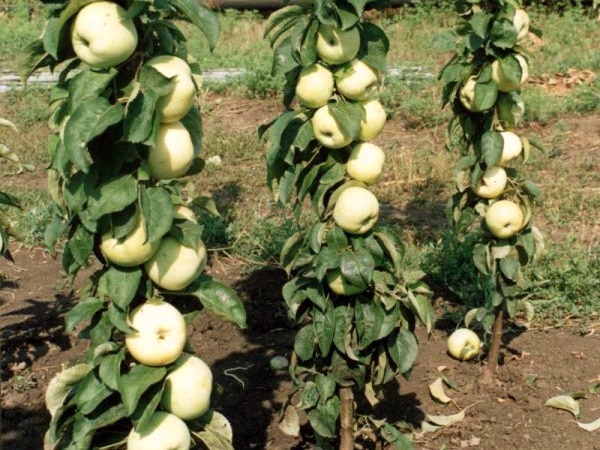
The frequency of fruiting
A feature of the variety is regular fruiting, although unfavorable conditions often cause breaks. Productivity - up to 10 kg per adult plant. With regular fertilization, correct watering, it will turn out to achieve 14-16 kg per tree.
Winter hardiness
The president is distinguished by endurance to adverse conditions, withstands severe frosts. It is recommended to wrap young trees with straw, spruce branches.
The soft bark attracts the trunk to protect from rodents, mice, and hares.
Disease resistance
The President is quite resistant to diseases and pests, he belongs to the best varieties. Despite the resistance to powdery mildew, rot, it is not recommended to refuse preventive treatments.
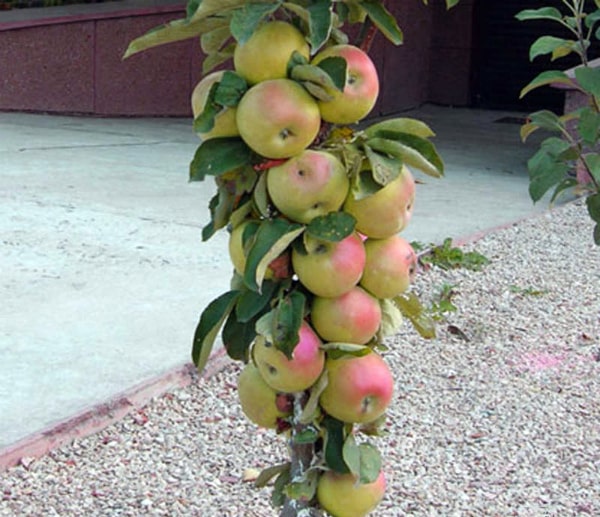
Tasting assessment
Fruits of the President variety are large (up to 200 g). Have a light shade, bright blush. The skin is dense, shiny. Taste - dessert, sweet, slightly sour taste. The aroma is rich, apple.
Advantages and disadvantages of the variety
The President variety has many positive qualities. The advantages include:
- frost resistance;
- survival rate;
- fruiting;
- ease of care;
- unattractiveness to pests;
- rare disease lesions.
There are also many disadvantages, among them - the high cost of seedlings, poor keeping quality of fruits. Another significant disadvantage is the short life span of culture.
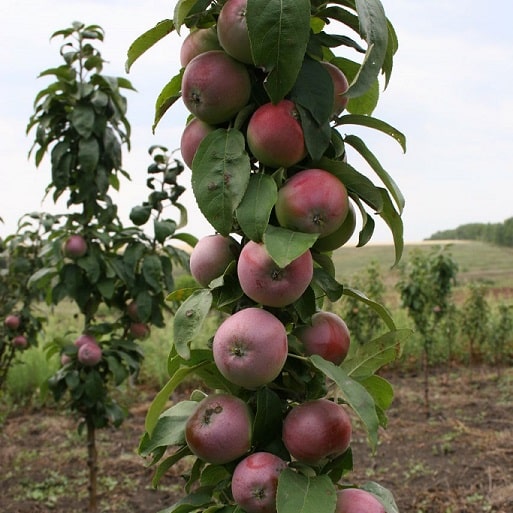
Features of breeding varieties
It is difficult to propagate columnar apple trees. Cuttings are often used or grafted. It is rare to get a varietal tree from seeds, about half of young plants will not correspond to the variety.
Fruiting from seed-grown trees will begin in the seventh year of life. The grafted plants bear fruit earlier - in the 3-4th year.
Planting a plant
Before planting, it is recommended to take into account the basic requirements of the variety, to choose the most comfortable place in the garden. Lighting, lack of groundwater, wind, drafts are only part of the conditions that will have to be met.
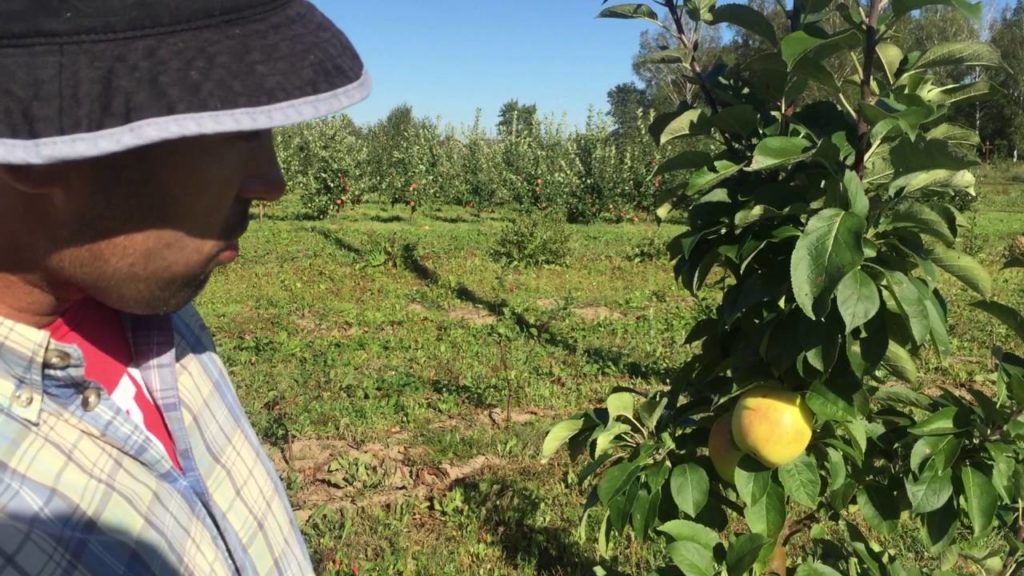
What soil to plant
The President feels an excellent variety of columnar apple on black soil. If you have to plant a plant on loam, sandstone, you will have to prepare a special mixture - mix compost, sand, clay, peat in equal parts, add mineral compounds.
Landing pit
The root system of the apple tree is quite compact, the size of the pit for planting is up to 60 cm in diameter. Depth - about half a meter. In sandy soils, deepen the hole up to a meter, put a layer of clay, which accumulates moisture.
Sapling planting scheme
Plant young trees at a distance of about half a meter, increase the gap between rows to a meter. If only a few plants are to be grown, distance does not play a special role.
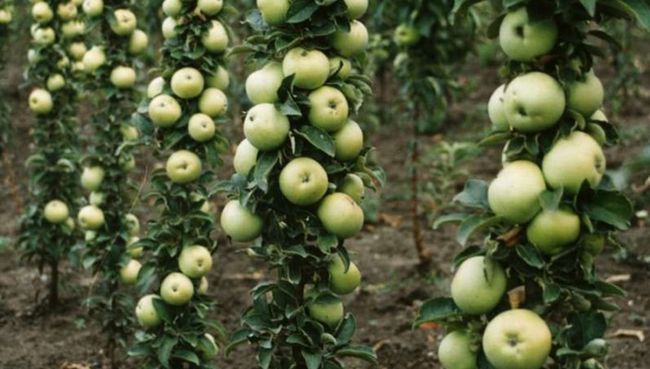
Basic rules of care
Caring for a columnar culture will not cause much trouble, since it does not differ from the cultivation of other fruit plants. The main thing is to follow the rules of watering, dressing, to monitor damage by pests, diseases.
Soil moisture and watering the apple tree
Watering in a hot season should be done every three days. The amount of liquid per adult plant is up to 10 liters. If possible, it is better to arrange drip irrigation.
Features of feeding
For top dressing, use rotted organic matter, mineral compounds, urea. For one adult tree - a bucket of compost, up to 5 g of mineral compounds, 10 g of carbamide. It is better to add the composition in the fall, after feeding, loosen it.
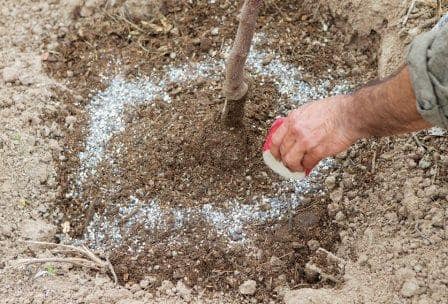
How to prune a columnar apple tree
Frequent pruning is not needed for the variety. Lateral shoots in the first year after planting, shorten to 2 buds. If one of the main shoots is frozen, two branches will go from the growing point next spring. It is recommended to delete one of them immediately.
Protecting the apple tree President from cold weather
A warm shelter will protect the variety from cold weather. First, wrap the trunk with a net to prevent pest infestation. Next - a layer of straw, burlap, spruce branches. In a snowy winter, huddle with snow.
Prevention and control of diseases and pests
Diseases are rare in the columnar apple tree.Despite the resistance, it is better to know in advance how to deal with the eternal enemies of the gardener - insects and diseases. Preventive spraying will prevent damage.
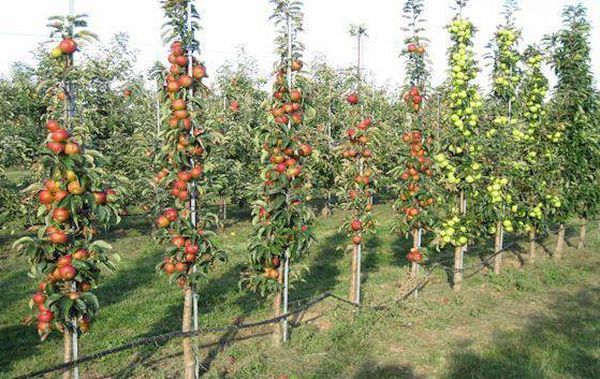
Scab
Fungal disease affects the leaves, spreads to the ovary, fruits. Cracks and dry spots appear on the apples. Carry out the treatment with Topaz. After fruiting, use a colloidal sulfur solution.
Black cancer
The disease affects the bark, spreads to leaves, fruits. If you do not start treatment in a timely manner, there is a risk of losing the tree. Remove the affected areas of the bark, irrigate the entire plant with Bordeaux liquid. Carry out processing after harvesting the fruits.
Powdery mildew
Affects buds, leaves, young shoots, bark. The fungus is not afraid of frost, the spores hibernate and continue to develop. It is recommended to carry out several treatments with Topaz during the season.
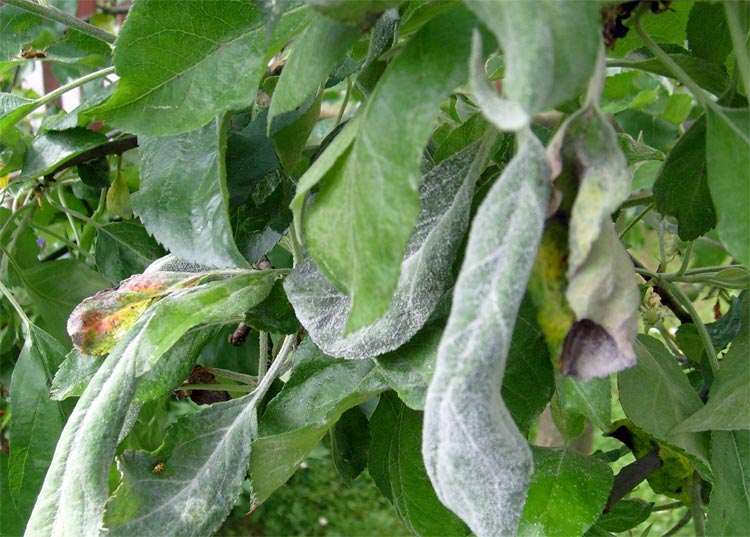
Bacterial burn
Only young plants are affected. Young shoots, leaves dry up, fruits quickly lose their presentation, begin to deteriorate. The only treatment option is to remove all affected parts and disinfect.
Apple sucker
Small green insects infect the buds, causing the absence of the ovary. It is recommended to fight pests with tobacco smoke. From drugs to use the solution "Karbofos".
Rodents
Against rodents, it is recommended to build a dense fence that will protect against hares. Poisonous bait should be used against mice, but only in winter - in summer there is a risk of killing pets.
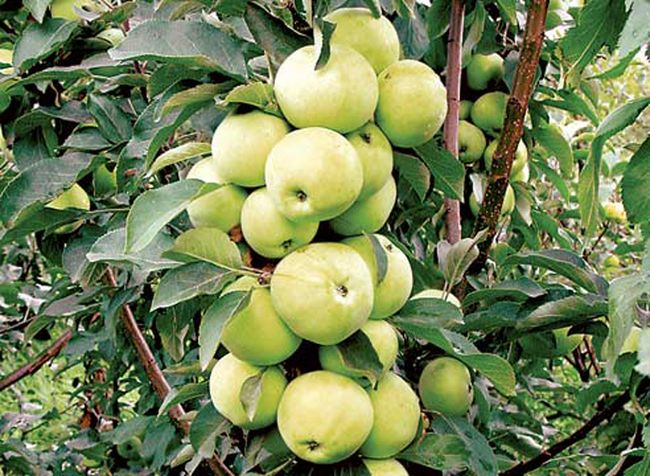
Ripening and fruiting
Columnar apple trees are considered the most fruitful in the 5th year after planting. After the eighth year after planting, the yield begins to decline. Age 15 is a reason to renovate the garden.
What year does it bear fruit?
Already in the first year after planting, the seedling is able to bloom, but it is recommended to remove the buds. In the second year, the apple tree will delight you with fruits, but some of them should also be removed.
When do the leaves bloom and when do they bloom?
The appearance of leaves and flowers depends on the climatic conditions. Usually the leaves appear in the last days of March. Flowering appears in April-May (depending on the weather). The duration of the flowering period is up to 10 days.
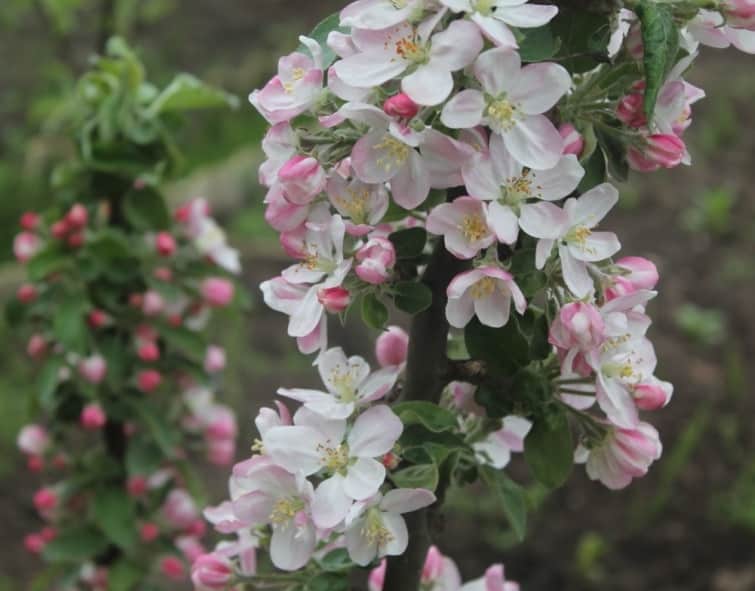
Ripening dates
Apples begin to ripen at the end of summer. In cooler regions, you will have to harvest fruits in early September.
Storage periods
The President will not please the fruit of the apple tree with the duration of storage - they usually lie for up to a month. If you provide the fruit with the correct regime (within 0 degrees), then it will turn out to extend the shelf life until the New Year holidays.
What regions is the variety more adapted to
The culture is often grown in Moscow, Moscow region. Cool winters, rather hot summers are excellent conditions for active development and fruiting of the President apple tree. You can even meet the variety in the Saratov region.
The Urals and Siberia are unfavorable regions for growing apple trees. Frosty winters, cool summers are just some of the factors that can destroy the plant. Usually the roots freeze out, then the tree itself suffers. Even a warm cover cannot protect the culture. The only way to preserve the tree is to grow the plant in a tub. With the onset of winter, send for the winter in a cool room. Put it back on the street in the spring.
The introduction of nutrients and moisture is not recommended - the plant is able to start growing early. It is allowed to moisten only the surface of the soil mixture.
Columnar apple tree is a decoration of any site. Compact size allows you to grow a gorgeous garden even on a small piece of land, which will delight you with an abundance of fruits. The main thing is to make a little effort, to provide the plant with everything it needs, to protect it from insects and diseases.

